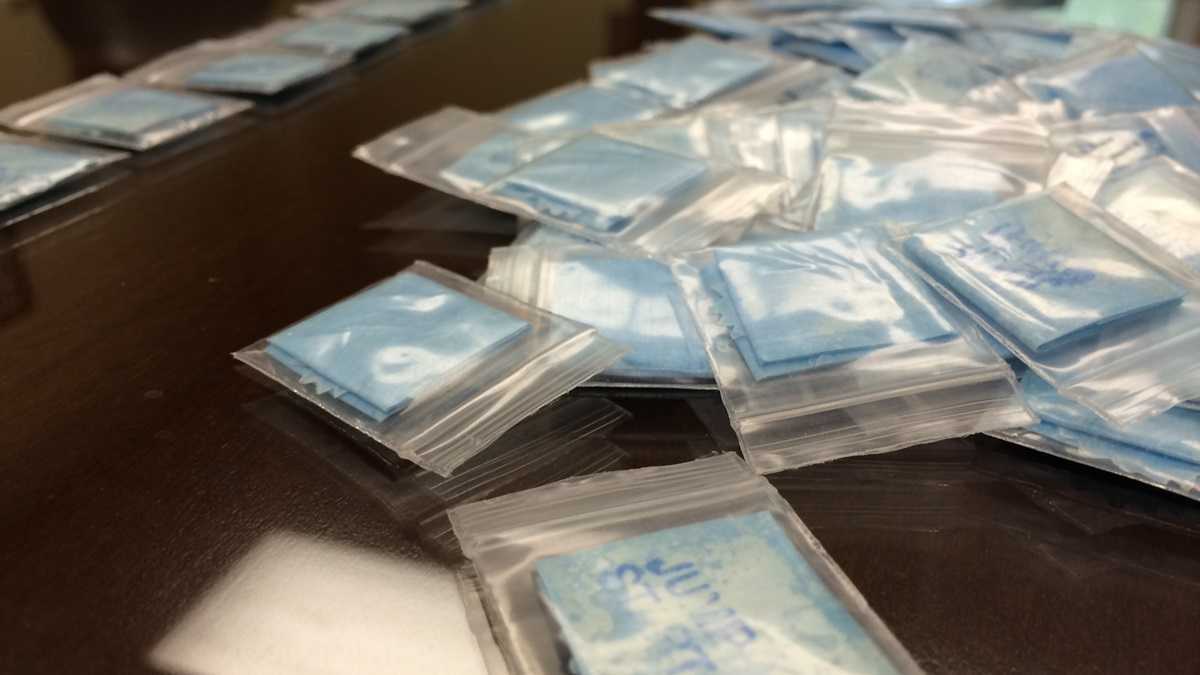Fentanyl overdoses increase in Delaware

(Shirley Min/WHYY)
Delaware’s Department of Health and Social Services reports an increase in fentanyl overdoses in the state.
As the heroin epidemic plagues Delaware, there’s another threat that health officials say could be even more fatal. The state has faced a dramatic increase in overdose deaths involving fentanyl, a synthetic painkiller up to 50 times more potent than heroin.
The state Department of Health and Social Services and the Department of Safety and Homeland Security report that, through the end of September, 31 people died from fentanyl overdose — up from 11 in 2014. The majority of those were in New Castle County.
“The increasing number of deaths in our state related to the ingestion of fentanyl is alarming,” said DSHS Secretary James Mosley in a statement.
Overdose by synthetic opioids also increased by 80 percent nationwide between 2013 and 2014, according to the Centers for Disease Control and Prevention.
Last year in Delaware, 189 people died from drug overdoses according to the CDC. Nationwide, 47,055 people died from drug overdoses combined in 2014 — 1.5 times greater than the number killed in car crashes — the CDC reports.
Fentanyl affects the central nervous system and brain, and often causes breathing to stop as the drug sedates the body, according to the health department.
The health department said that, because fentanyl can be produced in the form of a white powder, heroin users don’t know if fentanyl is mixed in or if the drug packet contains only fentanyl.
“With its extreme potency, even one use can be deadly,” said DHSS Secretary Rita Landgraf in a statement.
“We urge people to seek treatment for their addiction rather than risk death from an overdose of fentanyl, heroin or any other drug. No matter what individuals may believe about their addiction, treatment does work, and people do recover.”
The health department said if someone is too drowsy to answer questions, has difficulty breathing, or cannot be awakened, someone should call 911 immediately. Naloxone, the overdose-reversing medication carried in Delaware by paramedics and some police officers, also can be administered for fentanyl overdose.
Under Delaware’s Good Samaritan Law, people who call 911 to report an overdose cannot be prosecuted for low-level drug crimes.
The health department said individuals struggling with addiction can call DHSS’ 24/7 crisis services at 1-800-652-2929 in New Castle County, or 1-800-345-6785 in Kent and Sussex counties, to be connected to treatment services.
Individuals and families also can visit DHSS’ website www.HelpIsHereDE.com for information about addiction treatment and recovery services in Delaware and nearby states.
WHYY is your source for fact-based, in-depth journalism and information. As a nonprofit organization, we rely on financial support from readers like you. Please give today.





